Your Child’s Equipment
How to adjust a full support bath seat
If your child has limited mobility and limited head control, they may need a full support bath seat.
There are several full support bath seats available to parents and caregivers. Your community therapist will help you find one that best fits your child and your bathroom setting. All types of bath seats have common accessories and features.
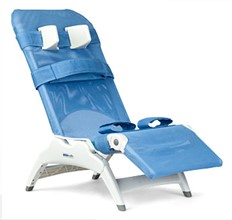
Photo credit: Rifton Equipment, 2017 (rifton.com)
Accessories
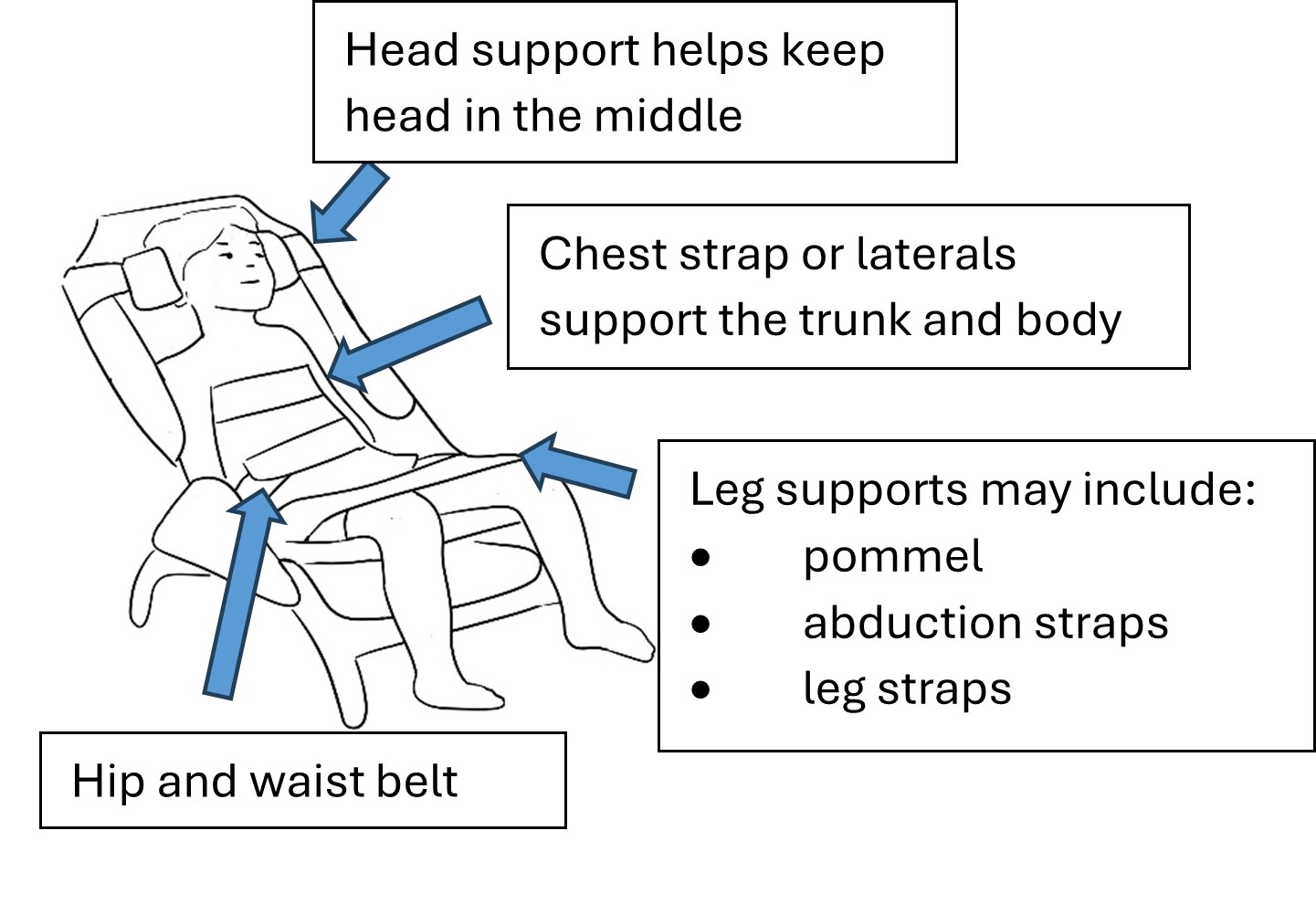
Adjustability
To best support your child, a full support bath seat can be adjusted in the following ways:
Adjust back angle:
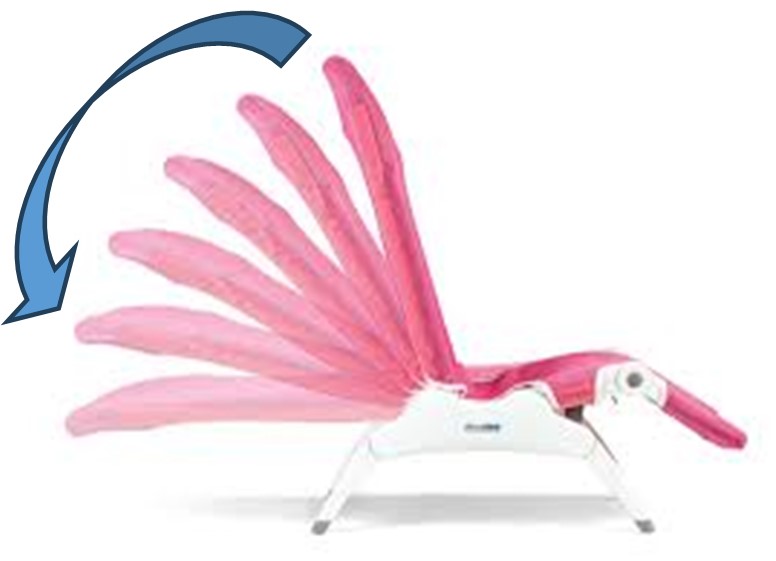
Photo credit: Rifton Equipment, 2017 (rifton.com)
Adjust seat angle (dump):
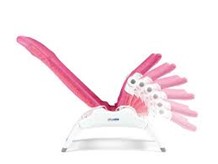
Photo credit: Rifton Equipment, 2017 (rifton.com)
Adjust leg support:
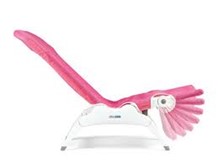
Photo credit: Rifton Equipment, 2017 (rifton.com)
Adjust height:
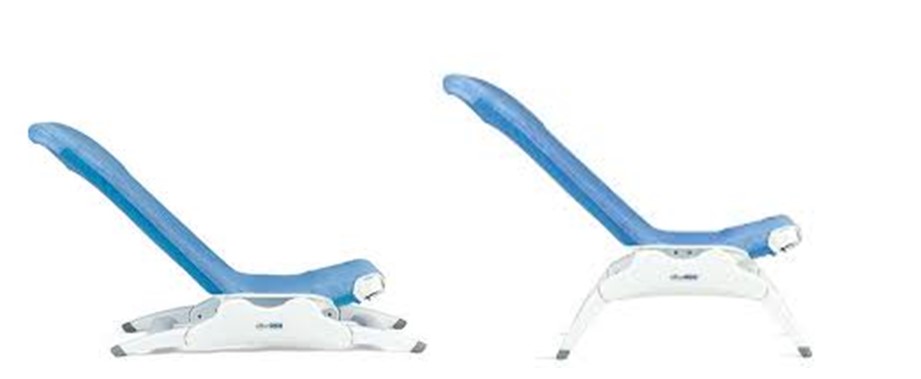
Photo credit: Rifton Equipment, 2017 (rifton.com)
Adjust tilt (keeps seat angle the same):
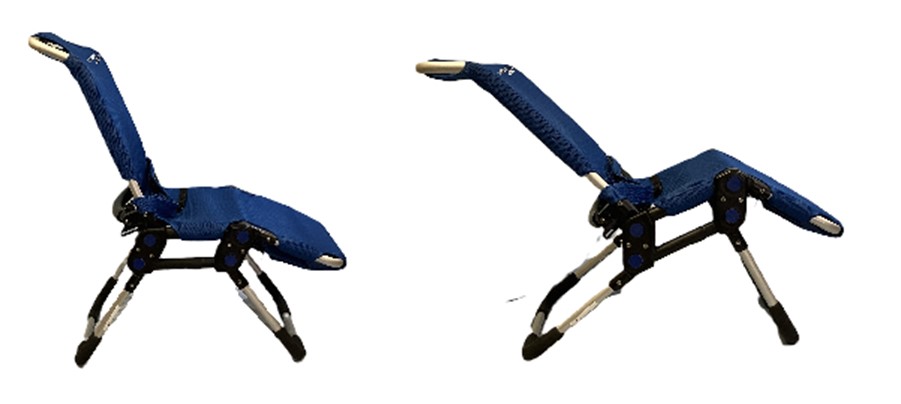
Photo credit: Alberta Health Services
Fold flat for storage:

Photo credit: Rifton Equipment, 2017 (rifton.com)
Common positioning challenges
There are some common positioning challenges with a full support bath seat. Try the solutions listed below. If they don’t work for your child, talk with your healthcare provider. Click on the link to see a video showing ways to adjust your child’s bath seat to fix these positioning challenges.
Falling forward
The weight of your child’s head and upper body can pull them forward when they relax in the warm water.
- Add a chest strap or lateral supports.
- Open the back angle so gravity will pull your child into the seat.
- Adjust the seat to tilt backward so gravity will pull your child into the seat.
- A combination of these options may be needed.
Sliding out
Your child may slide down in the seat when they relax in the warm water.
- Adjust or use a hip and waist belt.
- Adjust the seat angle to increase dump. This means your child’s hips are lower than their knees, which helps keep them in the seat.
- Adjust leg and calf support to support the weight of the legs.
- Adjust the seat to tilt backward so gravity will pull your child into the seat.
- A combination of these options may be needed.
Leaning
Your child may lean to the right or the left when they relax in the warm water.
- Add a chest or lateral strap to support your child’s trunk.
- Add head support.
- Open the back angle so gravity will pull your child into the seat.
- Adjust the seat to tilt backward so gravity will pull your child into the seat, instead of leaning to the side.
Pushing out
This can happen if your child has high tone and extends (stretches out) with movement, temperature changes, or big emotions.
- Adjust the seat to tilt it backwards. As their body relaxes, gravity will pull your child back into the seat.
- If your child’s leg muscles are tight, adjust leg and calf support to reduce stretch.
- Add positioning supports as needed. These may include head support, chest strap, or leg straps.
When should you call for help?
Contact your therapist if:
- Your child is not comfortable in the equipment.
- Your child has grown.
Contact the vendor if:
- There are broken parts on the equipment.
- Annual maintenance for moving parts.
To see this information online and learn more, visit MyHealth.Alberta.ca/health/aftercareinformation/pages/conditions.aspx?hwid=custom.ab_childs_equip_adjust_bathseat_inst.

Related to Bath Seats
For 24/7 nurse advice and general health information call Health Link at 811.
Current as of: October 31, 2024
Author: Pediatric Rehabilitation Services, Alberta Health Services
This material is not a substitute for the advice of a qualified health professional. This material is intended for general information only and is provided on an "as is", "where is" basis. Although reasonable efforts were made to confirm the accuracy of the information, Alberta Health Services does not make any representation or warranty, express, implied or statutory, as to the accuracy, reliability, completeness, applicability or fitness for a particular purpose of such information. Alberta Health Services expressly disclaims all liability for the use of these materials, and for any claims, actions, demands or suits arising from such use.
